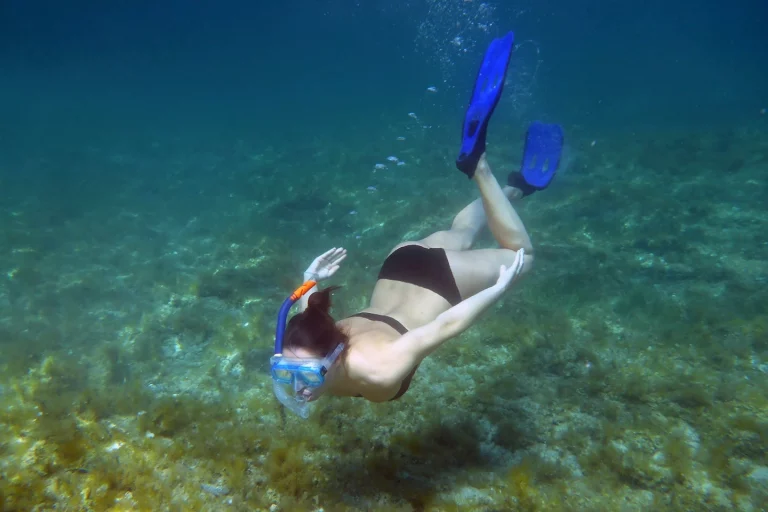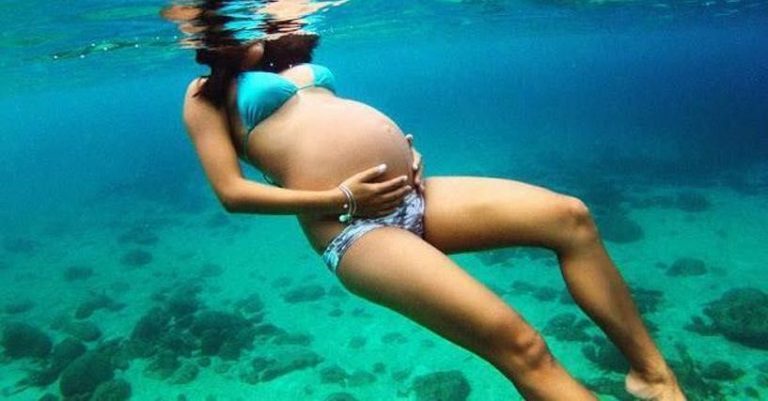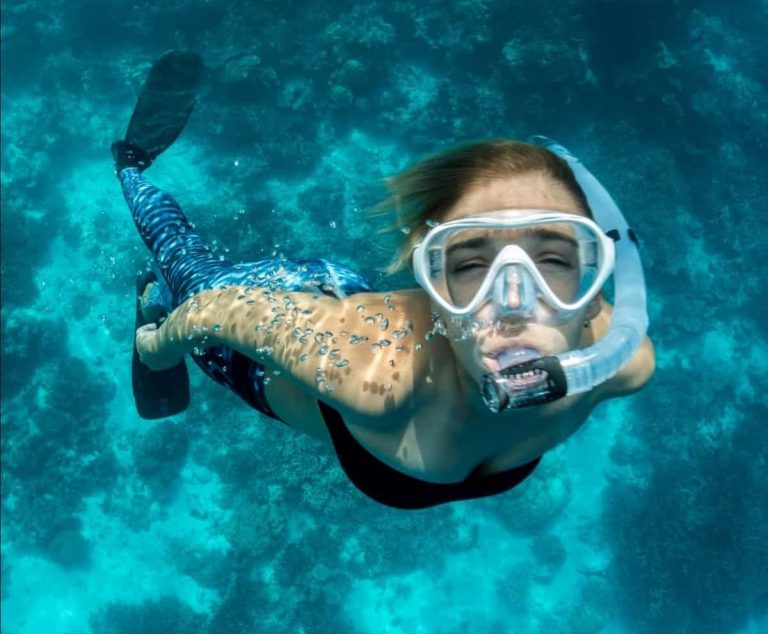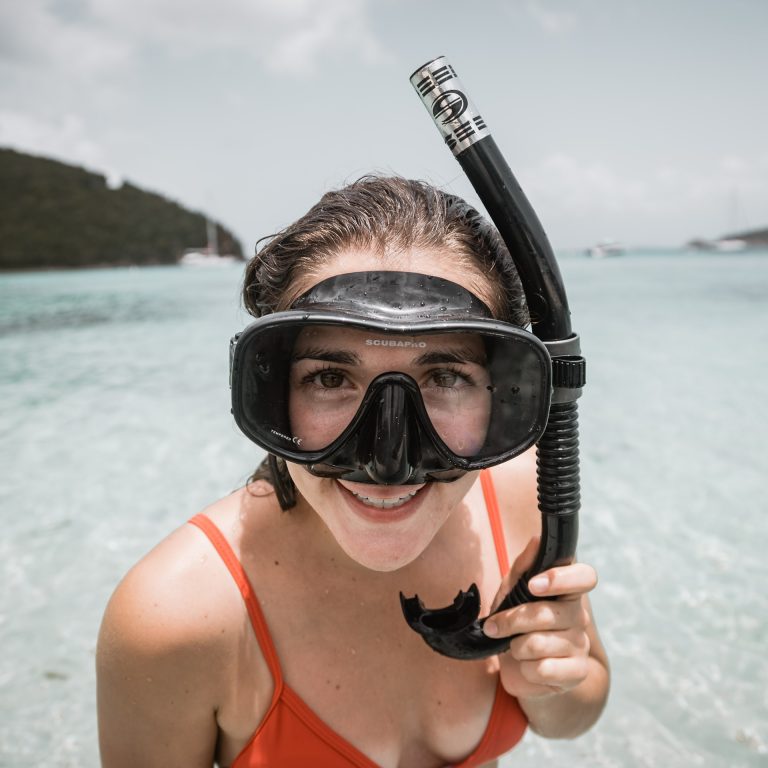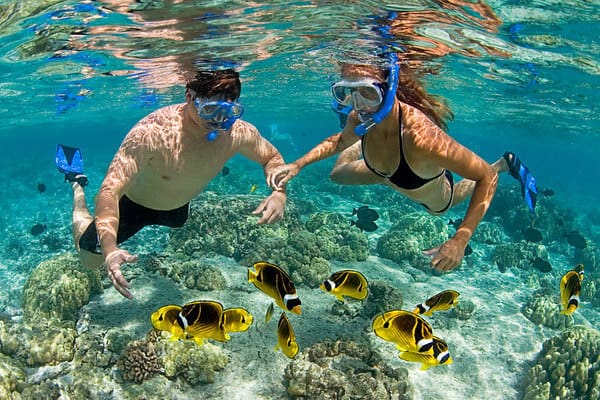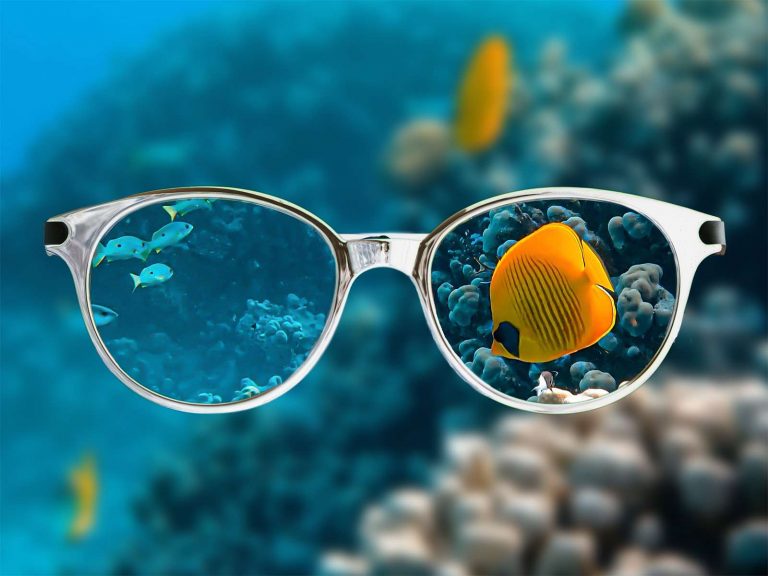Do you have any experience getting a sinus infection after a day of snorkeling? There might be a link between the two. The ocean’s germs may have caused your sinus infection if you accidentally drank or swallowed seawater. Snorkeling can cause a sore throat for the same reasons.
Can Snorkeling Cause a Sinus Infection? To some extent, that is possible. Snorkeling has a small but real danger of acquiring a sinus infection through exposure to contaminated saltwater, utilizing dirty rental gear, or experiencing a pressure-related injury during skin or duck diving. In this piece, however, we’ll go over several strategies for staying safe when snorkeling so that you may enjoy your vacation without worrying.
How Can Snorkeling Cause a Sinus Infection?
Inhaling seawater
The soft tissues could swell and become inflammatory if saltwater is inhaled or water enters the sinuses through the mouth or nose. Sadly, the seawater you’re swimming in is probably polluted if you’re in a popular tourist spot.
There is no way to determine how many companies are operating sustainably, but it is typical to practice snorkeling tour boats to throw their trash at sea. Other businesses on land may also dump their garbage into the ocean, leading to the death of coral reefs and marine life, and the sickness of unlucky snorkelers.
A sinus infection from swimming in salt water is possible due to the bacteria in the water. Swimming pool chlorine has been shown to aggravate preexisting nasal inflammation, making it easier for germs to settle in and increase, leading to infection and inflammation.
Barotrauma from skin diving
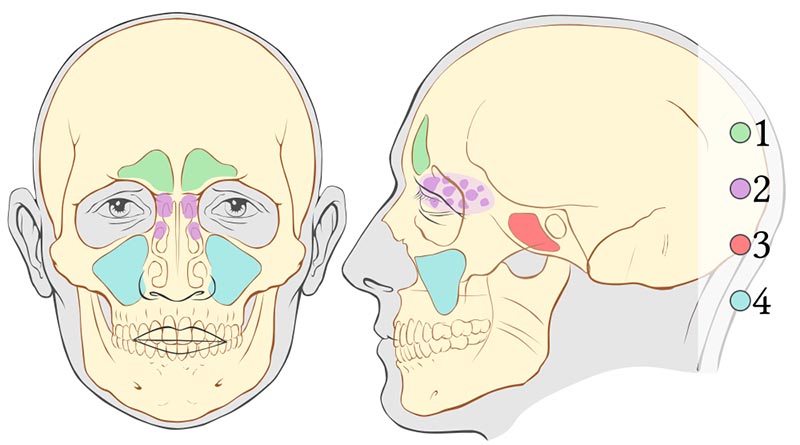
Scuba divers and freedivers are particularly at risk for barotrauma, an injury produced by pressure. Snorkelers who aren’t happy to float on the water’s surface can learn a trick from freedivers and undertake a skin dive (breath-hold dive) to get a better look at something.
To feel the water pressure, you must first submerge. There is more pressure the deeper you go. Because these air spaces are squeezed, you may feel the pressure in your mask, ears, and sinuses. Learn how to equalise the pressure in your mask, ears, and sinuses to feel better.
The rule of equalising early and often is commonly repeated. Barotrauma can occur if you wait until the pressure gets unpleasant before you take action to equalise. If you don’t equalise, you’ll feel the mask pressing on your face, your ears popping, and discomfort in your sinuses.
Sinus barotrauma causes fluid to enter the sinuses because of the pressure changes. Inflammation and illness can result from the buildup of fluid. Sinus barotrauma can lead to a sinus infection, which occurs when the nasal passages get irritated or damaged while skin diving.
Can You Dive or Snorkel with a Sinus Infection?
If you have a sinus infection, you shouldn’t go diving or snorkeling since it will worsen things.
Make sure you have no problems with the following before entering the water:
- Inhale and exhale normally via your nose.
- Take deep, cleansing breaths for at least two hours without blowing your nose.
- Have no symptoms of a cold, fever, or disease affecting the sinuses.
- You should be able to go for at least two hours without coughing.
- The effects should continue for at least two hours to feel safe and comfortable moving around in the water after taking the medicine.
Diving with a Cold or Allergies
Many scuba divers choose to use decongestants for their lives, and they might irritate the sinuses when used too often, doing more damage than good. If you’re confident in your diving abilities, proceed with extreme caution and move gently when entering and exiting the water. Due to a mucus buildup, your body’s ability to regulate internal air pressure may be impaired.
As you finish your dive, it is still possible to suffer the excruciating discomfort of ear barotrauma if you ascend too quickly.
Avoid scuba diving and snorkeling if you have a cold, allergies, or other illnesses that might aggravate your sinuses.
What Should I Do if I Notice Sinus Problems While Snorkeling?
Snorkelers should stop their activity if they feel unwell or have runny noses. Staying in the water, especially in a horizontal posture like while snorkeling, might prevent the fluid from draining from your sinuses, leading to a more serious problem.
Tips to avoid sinus infections while snorkeling

Snorkel in calm waters
Snorkeling novices and those without a strong swimming background are best suited to starting in calm, safe water. We advise getting the first experience in a safe environment, such as a shallow pool, lagoon, or beach. As a result, these regions are excellent jumping-off points since they are less likely to be influenced by the weather.
The aim is to get some experience with the fundamentals of snorkeling, such as cleaning your mask and snorkel. Floating on your back or knees is another option for practice. It’s easier to acquire a sinus infection by inhaling water if you don’t know the proper technique. Put a lot of time and effort into the fundamentals, because you also risk drowning.
Although it’s tempting, you shouldn’t begin your exploration at the shore’s shallow waters. Rapid shifts in weather and sea state are possible, and rain or wind can cause changes to the ocean’s waves and currents. Even in very shallow water, individuals might be swept away by a rip current and drown.
You should always wear a buoyancy aid, such as a life jacket or snorkel vest, regardless of your experience level. Doing so will aid in your continued buoyancy and enable you to preserve vital resources. Without flotation gear, it’s easy to inhale water accidentally if you’re battling to remain afloat or if the waves pick up.
Master your snorkeling equipment
Already said briefly, but mastering mask cleaning is essential. What do you do if water gets in your mask and fogs up? At some point, water will find its way past the mask’s seal, anti-fog treatment, or not, and the lens will fog up. How do you clear your mask?
You may rinse the mask lens by cracking the seal slightly at the bottom and letting water pour through. Then, you blow your nose hard, and the water should drain. If you want a visual demonstration of removing your mask, see the video below.
The ability to quickly clean your mask of water before snorkeling is a must. If you have to take your mask off your face and physically clean it with your hands, your snorkeling experience will be severely disrupted. Unfortunately, some people have trouble draining their masks and wind up with a sinus infection because they merely blew their nose. This is why novice divers should begin their training in a safe region where they may practise mask clearance in relatively calm seas.
Stay within your limits when skin diving
Getting a close look at anything may be a lot of fun, but only if you ease into it and learn to keep your head from spinning. Because an illness might result from nasal barotrauma, it’s important to be an expert equalizer.
The holy grail of counsel is to balance out often and early on. You should have already equalized if you’re experiencing discomfort in your mask, ears, or sinuses.
The Valsalva maneuver is the simplest method of restoring balance. It’s pinching your nose and slowly releasing air through your nostrils, which ought to help your ears and sinuses feel better. Simply exhaling through your nose (without pinching it) can restore balance to your mask.
Don’t go deeper into the water if you have trouble equalizing your pressure. Try going up in altitude and seeing if it helps you find balance. If you cannot do so, you should return to the surface. No kind of barotrauma, sinus or otherwise, is something you want to experience.
Stay warm
You’re probably in a hot and humid tropical location with pleasant water temperatures. But they are so taken aback that they end up shaking with fear. Explain why it is the case.
Water’s heat-removing properties are second to none (about 25x more effective than wind). In addition, the combination of wetness and wind chill can make for a miserable experience.
Sinuses are more vulnerable to irritation when you have a cold. When you’re chilly, your immune system weakens, and you’re more likely to get sick. Don’t risk becoming too cold by staying in the water for too long; protect yourself by donning a suitable exposure suit.


